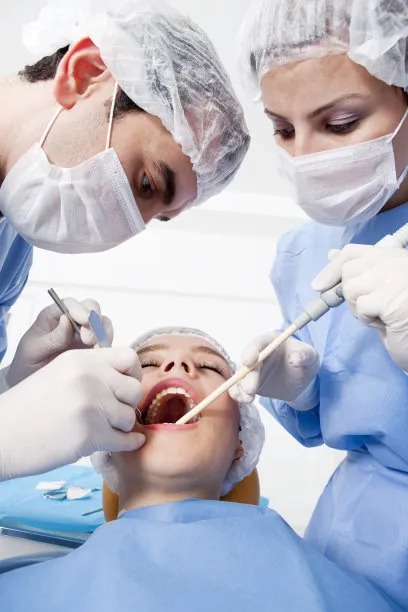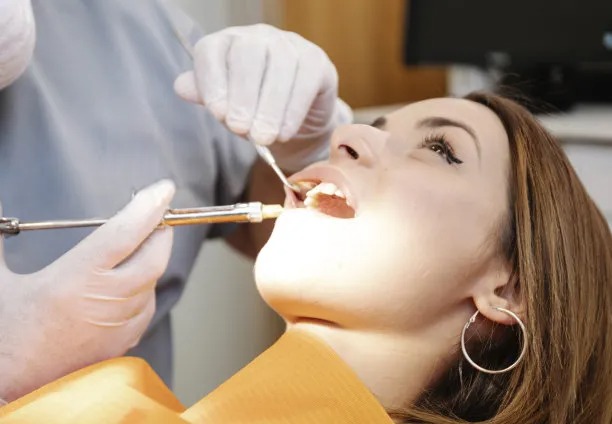Summary: This article delves into the essential guidelines and precautions necessary for successful dental implantation and optimal healing post-procedure. It covers four key areas: pre-operative preparations, post-operative care, maintaining good oral hygiene, and understanding potential complications. By following these guidelines, patients can enhance the success rate of their dental implants and speed up the healing process, leading to better overall outcomes. It emphasizes the significant role played by both the dental professional and the patients adherence to care instructions in fostering a successful dental implant experience.
1. Pre-Operative Preparations for Implants

Preparing for dental implants involves a thorough assessment by a qualified dentist to ensure suitability. This includes diagnostic imaging and health evaluations to identify any underlying conditions that may impede the procedure. A comprehensive medical history review is essential, as it helps the dentist decide on the best approach for implant placement.
Patients should be well-informed about the procedure, what to expect during and after the surgery, and any necessary lifestyle modifications. This could involve adjusting medication, dietary changes, or even quitting smoking. Creating a detailed plan, including scheduling the surgery and arranging for postoperative support, is critical to ensure a smooth process.
Finally, understanding the financial aspects is crucial. Patients should verify their insurance coverage regarding dental implants and evaluate the costs associated with the procedure. Having a clear financial plan can reduce stress and allow patients to focus on their recovery.
2. Post-Operative Care for Optimal Healing
After undergoing dental implant surgery, proper post-operative care is vital. This includes following the dentist’s instructions related to medications, such as antibiotics and pain relief, to manage discomfort and prevent infections. Ice packs can be applied to the face to reduce swelling during the initial healing phase.
Diet plays an important role in recovery. Patients should consume soft foods and avoid hard, spicy, or hot items that may irritate the surgical site. Hydration is also essential; however, one should steer clear of alcoholic beverages and caffeine during the initial healing period. This helps maintain optimal conditions for the implant to integrate with the bone.
Attending follow-up appointments is critical to monitor healing progress and address any arising concerns. Regular assessments allow the dentist to ensure that the implant is integrating well and to make any necessary adjustments in the recovery plan.
3. Maintaining Good Oral Hygiene Practices
After dental implant surgery, maintaining excellent oral hygiene is crucial to promote healing and prevent infection. Patients should begin by gently brushing their teeth twice a day, carefully avoiding the surgical site until it is healed. This practice helps in reducing plaque accumulation that could lead to complications.
Using an antibacterial mouthwash can also aid in keeping the mouth clean and reducing the risk of infection. Its advisable to follow the dentist’s recommendations regarding the type of mouthwash that is most beneficial during the healing phase.
In addition to brushing and rinsing, regular dental check-ups and professional cleanings should not be overlooked. These visits provide an opportunity for the dentist to assess both the implant and the surrounding teeth, ensuring everything remains in good health.
4. Understanding Potential Complications
While dental implants can be highly successful, some complications may arise. Patients must be educated regarding symptoms of potential issues such as excessive bleeding, prolonged swelling, or persistent pain. These signs could indicate infections or other complications that require immediate attention.
Other potential risks include implant failure due to insufficient bone density or poor oral hygiene. It’s essential for patients to communicate openly with their dentist about any concerns they may have throughout the healing process. Early detection and intervention can significantly enhance the success rate of the dental implant.
Moreover, understanding personal factors that may affect healing, such as smoking, diabetes, or certain medications, is essential. Patients are encouraged to discuss their full medical history with their healthcare provider to mitigate risks associated with these factors.
Summary:
In summary, the journey to successful dental implantation starts with thorough pre-operative preparations, continues through careful post-operative care, and is supported by diligent oral hygiene practices. Understanding potential complications and maintaining clear communication with the dental team further enhances the success of the procedure.
This article is compiled by Vickong Dental and the content is for reference only.
Vickong Dental
Vickong Dental is a large medical group established in Hong Kong in 2008 by professors from well-known medical universities in Guangdong and Hong Kong, as well as medical doctors from key national '985' universities (including Master's supervisors and senior professors). The chain of branches brings together expert dentists with PhDs and Master's degrees from Hong Kong and Mainland China, committed to providing high-quality dental treatment.
"Vickong Dental Practices the University Motto of 'Healing and Serving Society,' with a Stable Operation for Sixteen Years. It Has Been honored with Hong Kong Enterprise Leaders's Choice,' and is a Global Trusted Implant Center for the Nobel Implant System. Recommended by Hong Kong Metro Broadcast and Guangdong Television, it Serves Customers from Over Thirty Countries and Regions, Gaining the Trust and Favor of Citizens from the Guangdong-Hong Kong-Macau Greater Bay Area and Surrounding Cities.

Thousands of customers' unanimous praise
The most recognized and highly recommended dental service by customers in the Guangdong-Hong Kong-Macau Greater Bay Area
We Ensure You Receive Detailed Care and Attention Here
Hong Kong standards, Shenzhen prices, Your Trusted English-speaking dentists

Vickong Dental Medical-Grade Instrument Disinfection Process
Vickong Dental Medical-Grade Instrument Disinfection Process

Vickong Dental Chain: A Warm and Comfortable Environment for Treatment






Appointment Hours

Q&A
Why choose Vickong Dental?
Vickong Dental practices the university motto 「Medicine to Benefit Society」, with each branch bringing together highly qualified dentists with doctoral and master’s degrees from Hong Kong and the Mainland, and has maintained seventeen years of steady operation。Recipient of 「2024 Hong Kong Enterprise Leaders Brand」, 「2025 Hong Kong Enterprise Leaders Brand」, a Nobel Biocare Global Trusted Implant Center, and a brand recommended by Metro Radio Hong Kong and Guangdong TV。
To date, we have served customers from more than thirty countries and regions,earning exceptionally high word-of-mouth recognition and trusted recommendations from residents across the Guangdong-Hong Kong-Macao Greater Bay Area and surrounding cities
We have eight major branches in Zhuhai、Shenzhen,and a consultation and service assurance center in Hong Kong,so you can book a free consultation at any time for any questions,which is very reassuring.
If I do not accept the quotation after the CT scan, will I be charged??
No! As long as the actual treatment has not started, you will not be charged any fees.
Will there be any additional charges during the treatment process?
No, there won’t be any additional charges. Before treatment begins, we will clearly explain the treatment plan and its corresponding fees. Only after the patient agrees and signs the consent form will we proceed with the dental service.
Can I pay in Hong Kong dollars?
Yes. Vickong Dental accepts payment in Hong Kong dollars. The amount will be converted based on the exchange rate of the day, and the applicable rate will be clearly communicated to you in advance.
Can I reschedule my appointment at any time?
Yes. Please contact us via **WeChat** or **WhatsApp** as early as possible, providing your original appointment time and details, along with your preferred new date and time slot for rescheduling.













